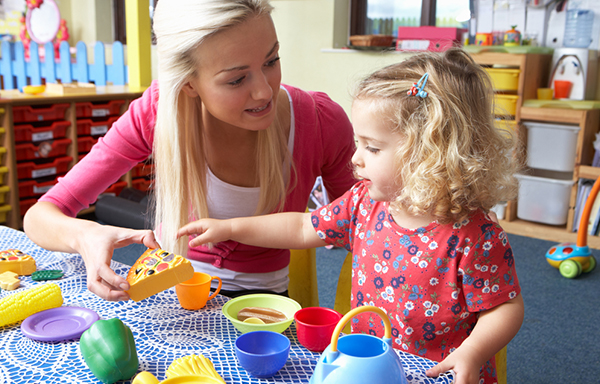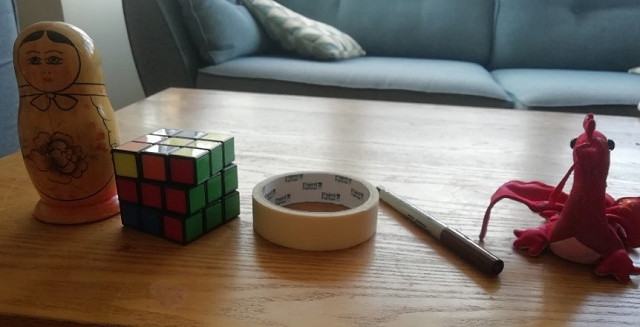The Great Indoors

- Juliet Leonard, Speech and Language Therapist.
Currently, we are all spending a lot of time indoors and around the house. There are always an abundance of jobs to be done and this means, luckily, that language opportunities are all around us. Here are some ideas for games you can complete around the house to support speech and language development, that will also hopefully help with some of the daily chores!
1. Sock spectacular!
Isn’t this just the best job – finding the socks that go together. And there’s always at least one sock that has lost its partner! Collect up all the clean dry socks from your washing load to play this game.
- You could play a matching game, talking about ‘same’ and ‘different’. If your child doesn’t understand ‘different’ yet, start with ‘same’ and ‘not same’.
- You could play a describing game, using words like ‘long’, ‘short’, ‘stripy’ or even ‘smelly’!!
- You could play ‘Who’s sock?’, e.g. “Mummy’s sock”, “my sock”, “your sock!”
These games will help your child to understand and use describing words and concepts like long/short and same/different. They can practise using possessive endings like mummy’s sock. You can make the games harder by using words like ‘not’, ‘all’ and ‘except’, e.g. “these socks are all red, except this one”.
2. Scavenger Hunt
Send your child on special missions, e.g. to hunt for 5 things in the house that:
- are red
- are spotty
- are soft
- we use to write with
Encourage them to talk about where they found the items and how they are similar, e.g. ‘these 5 things are all red’. Talk about who the item belongs to and what it is for. This will help your child to be able to sort by category (e.g. clothes, food, toys) and function (e.g. for playing, for writing, or riding), to find similarities and answer ‘where’ and ‘who’ questions.
3. All washed up
This is a good opportunity to give some of the toys a good wash! Get a washing up bowl or sink of soapy water and choose some toys to wash. Talk about how they feel, what they are for, whether they are clean, or dirty, or wet, or dry. Now they can clean the toys, maybe the dishes next?!!
4. Sentence scramble
Hide some words around the house and ask your child to hunt for them. When they have found the words, see if they can put them in to a sentence that makes sense.
I Mummy Daddy The dog
jumped ran skated fell swam painted
in the sea in the park in the zoo in the garden in the snow
This game is great for practising forming sentences and for learning to use past tense verbs – regular (walked, jumped, looked) and irregular (ran, fell, saw).
5. Silly stories
Ask your child to find 5 random objects around the house. Together, make a silly story, putting the objects in to a sequence to help make the story. Encourage your child to use the words ‘first’, ‘then’, ‘but’, and ‘and’ to link their sentences and sequence ideas.

Once upon a time there was a beautiful lady who was very lonely and wished that she had a friend she could talk to. She spent her days doing puzzles and hula hooping, all alone. One day she had a great idea, she made a poster on her window saying, “Friend wanted to play games and hula hoop with!” There was a knock on the door; a red dragon said, “I love puzzles and hula hooping”. She wasn’t lonely anymore!